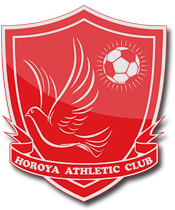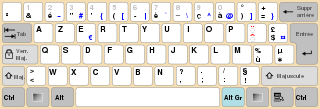Related Research Articles

Conakry is the capital and largest city of Guinea. A port city, it serves as the economic, financial and cultural centre of Guinea. Its population as of the 2014 Guinea census was 1,660,973.

"Liberté" is the national anthem of Guinea. Adopted upon independence in 1958, it was arranged by Fodéba Keïta and is based on the melody of a Maninka praise song by Korofo Moussa for 19th-century Fouta Djallon king Alpha Yayo Diallo.

Ahmed Sékou Touré was a Guinean political leader and African statesman who became the first president of Guinea, serving from 1958 until his death in 1984. Touré was among the primary Guinean nationalists involved in gaining independence of the country from France. He would later die in the United States in 1984.

Boubacar Diallo Telli was a Guinean diplomat and politician. He helped found the Organisation of African Unity (OAU) and was the second secretary-general of the OAU between 1964 and 1972. After serving as Minister of Justice in Guinea for four years he was executed by starvation by the regime of Ahmed Sékou Touré at Camp Boiro in 1977.

Horoya Athletic Club, also known as Horoya Conakry or H.A.C., is a Guinean professional football club based in Conakry, Guinea. The club plays in the Ligue 1 Pro, the top tier in the Guinean football league system. It was founded in 1975.

Saifoulaye Diallo was a Guinean politician, lawmaker and cabinet member.
Military unrest occurred in Guinea in late May 2008 as soldiers of the Military of Guinea demanded wage arrears. In the capital, Conakry, soldiers fired into the air, held the deputy chief of staff of the army prisoner, and engaged in looting. The government promised to pay the soldiers, and by the end of May the situation was reportedly calm.
Camp Boiro or Camp Mamadou Boiro (1960–1984) is a defunct Guinean concentration camp within Conakry city. During the regime of President Ahmed Sékou Touré, thousands of political opponents were imprisoned at the camp. It has been estimated that almost 5,000 people were executed or died from torture or starvation at the camp. According to other estimates, the number of victims was ten times higher: 50,000.

Kabiné Komara was Prime Minister of Guinea from 30 December 2008 to 26 January 2010. Until the end of 2008 a director at the African Export-Import Bank in Cairo, Egypt, Komara was announced as the new Prime Minister in a government radio broadcast on 30 December.

The Republic of Guinea is a multilingual country, with over 40 languages spoken. The official language is French, which was inherited from colonial rule.
Trade unions in Guinea were historically important - having played a pivotal role in the country's independence movement - and in recent years have again assumed a leading role.
Le Phare de Guinée was a newspaper published in Guinea between 1947 and 1949. The newspaper was published by the Democratic Party of Guinea (PDG), the Guinean section of the African Democratic Rally (RDA).

Loffo Camara was a senior Guinean politician and a member of the Politburo of the First Republic of Guinea in the years immediately following independence. After falling out with the President Sékou Touré, she was dismissed from the cabinet, and later was arrested and executed.
Alpha Oumar Barry (1925–1977) was a Guinean politician, a member of the cabinet of President Ahmed Sékou Touré in the first Guinean republic, who was later arrested and died at Camp Boiro.

Siaka Touré (1935–1985) was the commandant of Camp Boiro in Conakry, Guinea during the regime of Guinean President Ahmed Sékou Touré. During this period, many of the president's political opponents died in the camp.
Jean-Paul Alata was a Frenchman who was a political prisoner in Camp Boiro, Guinea from January 1971 to July 1975, later writing a book about his experience which was banned by the French government.
Football is the most popular sport in the country of Guinea. It is run by the Guinean Football Federation. The association administers the national football team, as well as the national league. It was founded in 1960 and affiliated with FIFA since 1962 and with the Confederation of African Football since 1963.
The Ignace Deen Hospital is a hospital in Conakry, Guinea built during the colonial era. The hospital is situated next to the National Museum.
The following is a timeline of the history of the city of Conakry, Guinea.
The Ligue 1 is the top tier men's basketball league in Guinea. The defending champion is SLAC, which won its sixth title in 2021. Most games of the league are played in the Palais des Sports next to the Stade du 28 Septembre in Conakry.
References
- ↑ "Guinée". Organisation internationale de la Francophonie (in French). Archived from the original on 2015-09-27. Retrieved 3 March 2023.
- ↑ Haby Niakate (27 February 2014). "Le système D-brouille de la presse guinéenne". Jeune Afrique . Retrieved 26 October 2014.
- ↑ Mamadou Dindé Diallo (2013). Un siècle de journaux en Guinée: Histoire de la presse écrite de la période coloniale à nos jours (Doctoral thesis) (in French). University of Toulouse II - Le Mirail.
- ↑ Devey, Muriel (2009). La Guinée. Karthala Éditions. p. 268. ISBN 978-2-8111-0037-7.
- ↑ "Le Lynx - Conakry". Courrier International (in French). Retrieved 3 March 2023.
- ↑ Mohamed Lamine Cissé (2012). La Politique extérieure de la Guinée: Les Fondements. Editions Publibook. p. 454. ISBN 9782748389265.
- 1 2 O. Tity Faye (2008). Guinée: Chronique d'une démocratie annoncée (in French). L'Harmattan. pp. 101–102.
- ↑ Oumar Kanté (2004). Pourquoi, diable ai-je voulu devenir journaliste?. menaibuc. p. 76. ISBN 9782911372445.